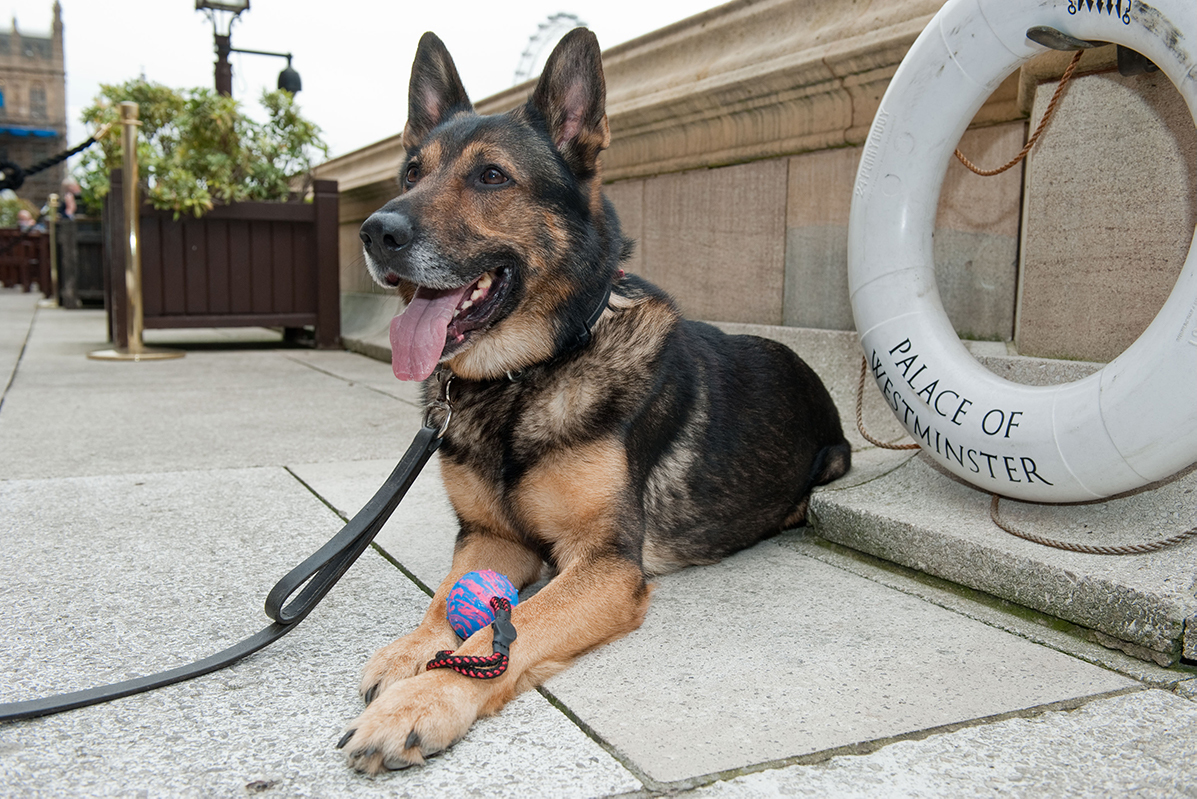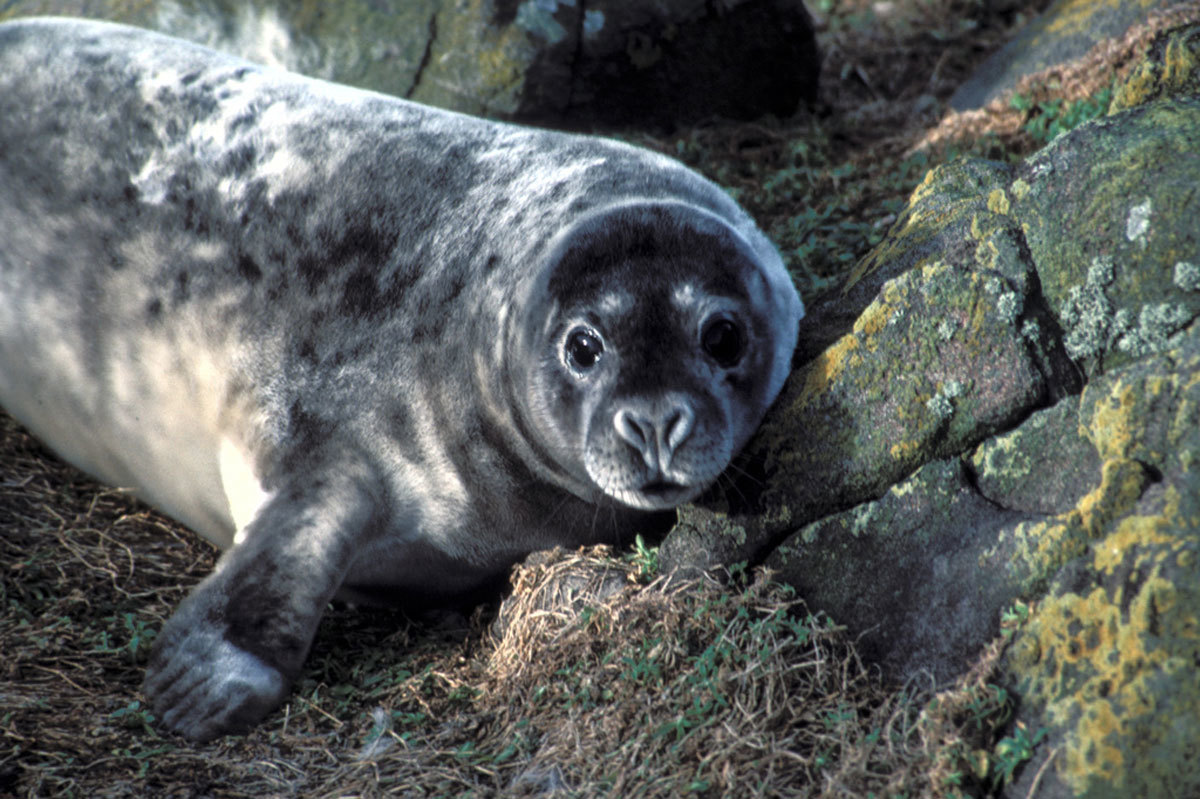Updates
How IFAW has helped animals and people during the Ukraine crisis
Learn moredouble win for animals in scotland

London – The passing of two significant pieces of animal welfare legislation in Scotland today – increased sentencing powers for animal cruelty and a ban on seal shooting - has been welcomed by the International Fund for Animal Welfare (IFAW).
The Scottish government announced an increase in maximum sentencing for animal cruelty cases from one year to five years, following extensive campaigning by IFAW and other groups. It had previously pledged support for a ‘Finn’s Law’ for Scotland, to recognise in law the importance of service animals such as dogs and horses and better protect them from attack. It is hoped that increased sentencing powers for animal cruelty cases will provide a deterrent for such attacks on service animals, as well as giving broader protection to all animals.
Finn’s Law was named after police dog Finn who was stabbed in the head and chest while protecting his handler, PC Dave Wardell during an incident in Hertfordshire, England in 2016. As service animals were classified as ‘property’ at the time, Finn’s attacker could only be charged with criminal damage. German shepherd Finn was initially not expected to survive his injuries but went on to make a remarkable recovery.
A resulting campaign for better recognition of service animals and increased measures to protect them led to Finn’s Law being passed in England and Wales last year and Scotland pledging to introduce similar legislation. A Bill to increase sentencing powers for animal cruelty cases in England and Wales is still progressing through Parliament.

Although the move to ban the shooting of seals by fish farmers was prompted in part by the risk of Scottish farmed salmon no longer being eligible for export to the US market in future while seals were still being shot on fish farms, it was also a reaction to growing pressure for the cruel practice to be halted on animal welfare grounds. The ban was made possible via an amendment to the Animals and Wildlife (Penalties, Protections and Powers) (Scotland) Bill.
IFAW UK Regional Director James Sawyer said: “We are delighted at these decisions by the Scottish government, which are two vital and hard-fought victories for animals. As demonstrated by Finn’s story, our service animals do an amazing job protecting us and deserve the same in return. We are hopeful that stronger sentencing powers for animal cruelty cases will reduce the number of attacks on them and all animals.
“IFAW and other groups have campaigned for many years for an end to the cruel and ineffective shooting of seals in Scotland. We are pleased to see that this change in the law should provide much-needed protection for seals which also face a range of other threats from entanglement in marine debris to the effects of plastic pollution. We support the use of non-harmful methods to prevent seals from damaging Scottish salmon farms.”
In recent years, the US has become one of the top export markets for Scottish salmon, with reported exports worth £193m in 2017. However, on 1st January 2022, new regulations will come into force in the US under the Marine Mammal Protection Act which prohibit the import of fish or fish products to its shores that are the result of an ‘intentional killing or serious injury of a marine mammal’.
Back in 2010, the Scottish government passed the Marine (Scotland) Act, which made the killing of seals illegal. However, the Act included a provision that allowed seals to be shot under licence in order to protect salmon fish farms and local fishing interests. As natural predators of salmon, seals have been reported to cause significant damage to fishing nets and other equipment and, since 2011, trained and licensed ‘seal shooters’ at salmon farms have been allowed to kill seals considered to be targeting their salmon. Polling by IFAW in 2019 found 75%* of the Scottish public were unaware of the current policy on the shooting of seals.
Not only is there a lack of evidence that shooting does actually reduce seal predation at fish farms, but it also raises serious welfare concerns and has a detrimental impact on the reputation of the Scottish fish farming industry. Although very few carcasses are recovered, evidence gathered from shot seal necropsies reveals that some seals do not die instantly, but slowly and painfully. Additionally, 35% of these necropsied seals were pregnant grey seals, and some seals were shot during their lactation period - when pups are most dependent on their mothers.
Since 2011, more than 1,700 grey and harbour seals have been killed under licence. Yet there is no substantial evidence to prove that shooting reduces seal interactions, or that the seals shot were the ones causing the damage. In addition, the number of seals shot has steadily decreased in recent years, from an average of 200 seals per year down to under 50, which reflects both public opposition to the shooting of seals and greater efforts by the industry to find alternative methods to prevent them from causing damage, such as properly weighted and tensioned nets.
Ends
For more information or to arrange interviews please contact Clare Sterling on mobile 07917 507717 or email csterling@ifaw.org. Images are available on request.
Notes to Editors: *This figure is from a YouGov poll commissioned by IFAW with a total sample size of 1,024 adults. Fieldwork was undertaken between May 31 and June 4, 2019 with the survey carried out online. The figures have been weighted and are representative of all adults in Scotland (aged 18+).
About the International Fund for Animal Welfare (IFAW) - The International Fund for Animal Welfare is a global non-profit helping animals and people thrive together. We are experts and everyday people, working across seas, oceans and in more than 40 countries around the world. We rescue, rehabilitate and release animals, and we restore and protect their natural habitats. The problems we’re up against are urgent and complicated. To solve them, we match fresh thinking with bold action. We partner with local communities, governments, non-governmental organisations and businesses. Together, we pioneer new and innovative ways to help all species flourish. See how at ifaw.org
Every problem has a solution, every solution needs support.
The problems we face are urgent, complicated and resistant to change. Real solutions demand creativity, hard work and involvement from people like you.
Unfortunately, the browser you use is outdated and does not allow you to display the site correctly. Please install any of the modern browsers, for example:
Google Chrome Firefox Safari